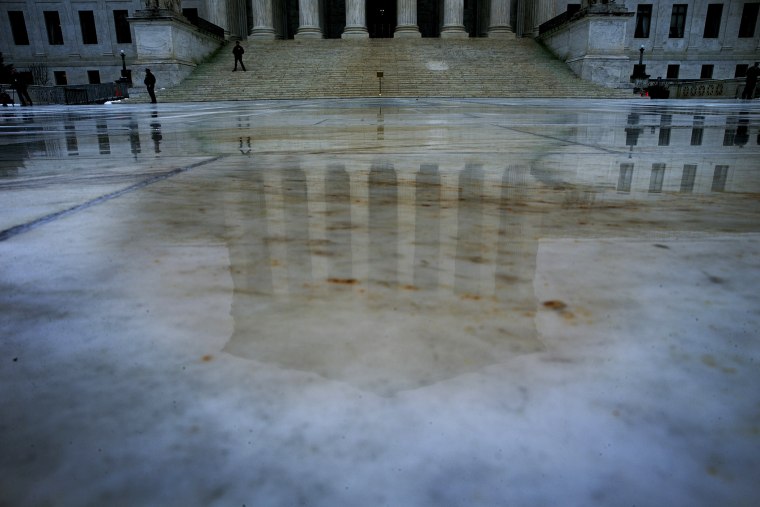By a 5-4 ruling, the court ruled that aggregate limits on campaign contributions are an unconstitutional violation of the First Amendment's guarantee of free speech. The court's five conservative justices struck down the limits, while the four liberal justices dissented. The court found that the only kind of corruption that the government can legitimately use campaign finance laws to address is quid pro quo corruption, and that the aggregate limits do not further that goal. Instead, wrote Chief Justice John Roberts for the majority, they "intrude without justification on a citizen's ability to exercise 'the most fundamental First Amendment activities.'" Federal law had barred individuals from contributing, in aggregate, over $46,200 to candidates, and over $70,800 to groups. Shaun McCutcheon, an Alabama businessman, brought the case with heavy backing from the GOP. He had already contributed to 16 Republican candidates, but wanted to give to 12 more, and to give separate $25,000 contributions to three Republican committees. Doing so would have put him over the aggregate limits.
The Court's conservative majority believes that the First Amendment gives wealthy donors and powerful corporations the carte blanche right to buy an election but that the Fifteenth Amendment does not give Americans the right to vote free of racial discrimination. These are not unrelated issues – the same people, like the Koch brothers, who favor unlimited secret money in US elections -- are the ones funding the effort to make it harder for people to vote. The net effect is an attempt to concentrate the power of the top 1 percent in the political process and to drown out the voices and votes of everyone else. [...] A country that expands the rights of the powerful to dominate the political process but does not protect fundament rights for all citizens doesn't sound much like a functioning democracy to me.
